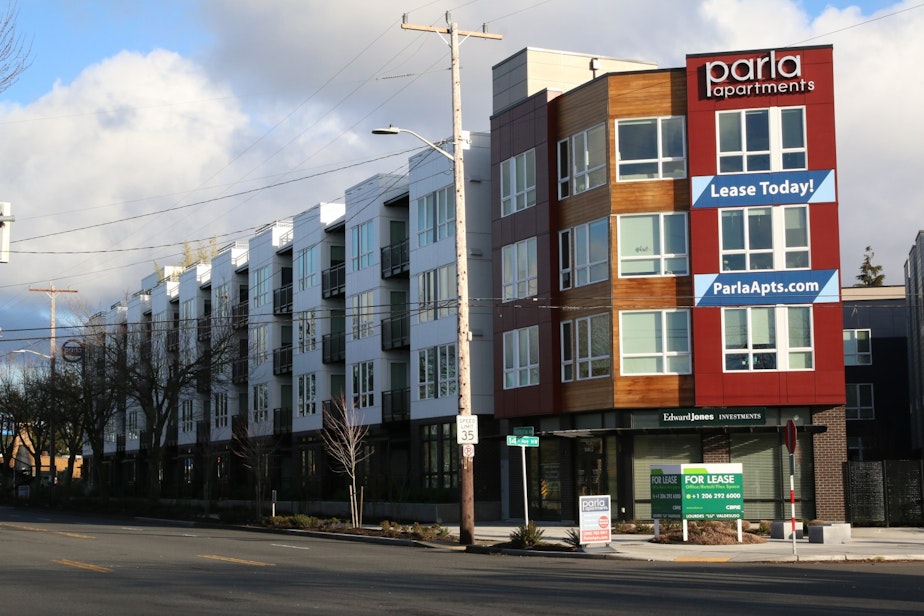Next steps for Seattle's (passing) social housing initiative

Seattle’s social housing initiative is leading by 14% and the final vote tally could be certified next week. What are the next steps?
Initiative 135 proposes to set up a public developer in Seattle City Hall. This office would create or buy housing, which would accommodate a range of renters — from low income to those earing as much as 120% of the area's median income.
Three things are happening now. There’s a scramble to line up money, people, and space. Officially, this work begins after certification of election results, but some people are preparing now.
First, the money. Some startup funds will come from the Seattle City Council. How soon? The people behind the initiative say they they’re entitled to it this spring when council members solidify their mid-year "supplemental budget," but funding may get pushed to the fall budget. Which timeline occurs depends on how aggressive Seattle's elected leaders want to be about getting the new publicly-owned social housing developer started.
More money could come from Olympia this session. Rep. Frank Chopp (D–Seattle) has promised to put in a "member request" for a budget line item after the election results are certified.
Early estimates suggested that startup costs would be less than $1 million. An analysis by City of Seattle staff put the amount around $750,000, about the cost of a single–family home in Seattle.
Sponsored
But it's unclear at this time whether that would pay for the full 18 months of the startup's operational costs, or just for a couple extra city staff members to oversee administration. Board members, the majority of whom are renters on modest incomes at the most, are guaranteed compensation for their time. And computers and desk space aren't free, either.
Right now, the City of Seattle is on the hook to pay for 18 months of all overhead costs, minus whatever Olympia provides.
Later, the social housing provider will need a lot more money from the city — or from the state — to actually start buying property.
Tiffani McCoy, who heads Advocacy for Real Change, led the “yes” campaign for I-135. She said if no one steps up with that kind of money, there's a backup plan: another initiative.
“If we as the coalition of House Our Neighbors have to go to the voters and put forward a funding source on our own, because the mayor and the city council won’t act, even after this decisive vote, then that’s what we will do,” McCoy said.
Sponsored
McCoy and others have said in the past they want their long-term source of income to be progressive, meaning it shouldn't come from a source like a sales tax, which disproportionately impacts low-income families.
That would involve using municipal bonds. KUOW will do additional reporting on the initiative's bonding capacity as the measure's long-term funding strategy becomes more clear.
Seattle City Councilmember Tammy Morales has signaled she plans to shepherd the new organization and its financial needs through the city council process.
The second thing on the agenda is people. Elected leaders and groups like the Seattle Renters Commission must start nominating board members. MLK Labor, El Centro de la Raza, and the Green New Deal Oversight Board get picks too.
And finally, City Hall must decide where to put this organization. In the municipal tower? Sublease some underused office space from Amazon?
Sponsored
Once the election results are certified, all the parties involved will have 60 days to get the city's new social housing developer up and running.




